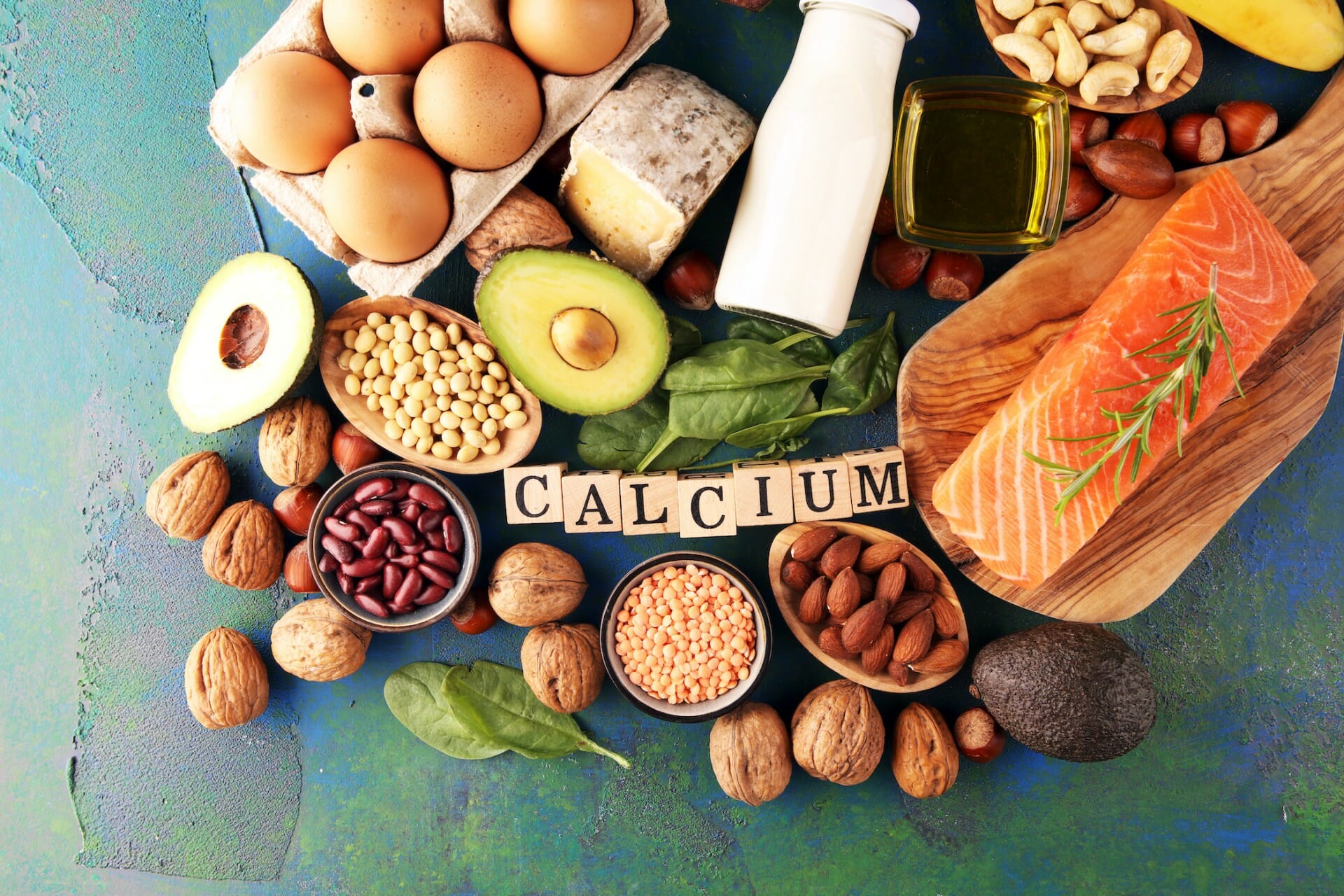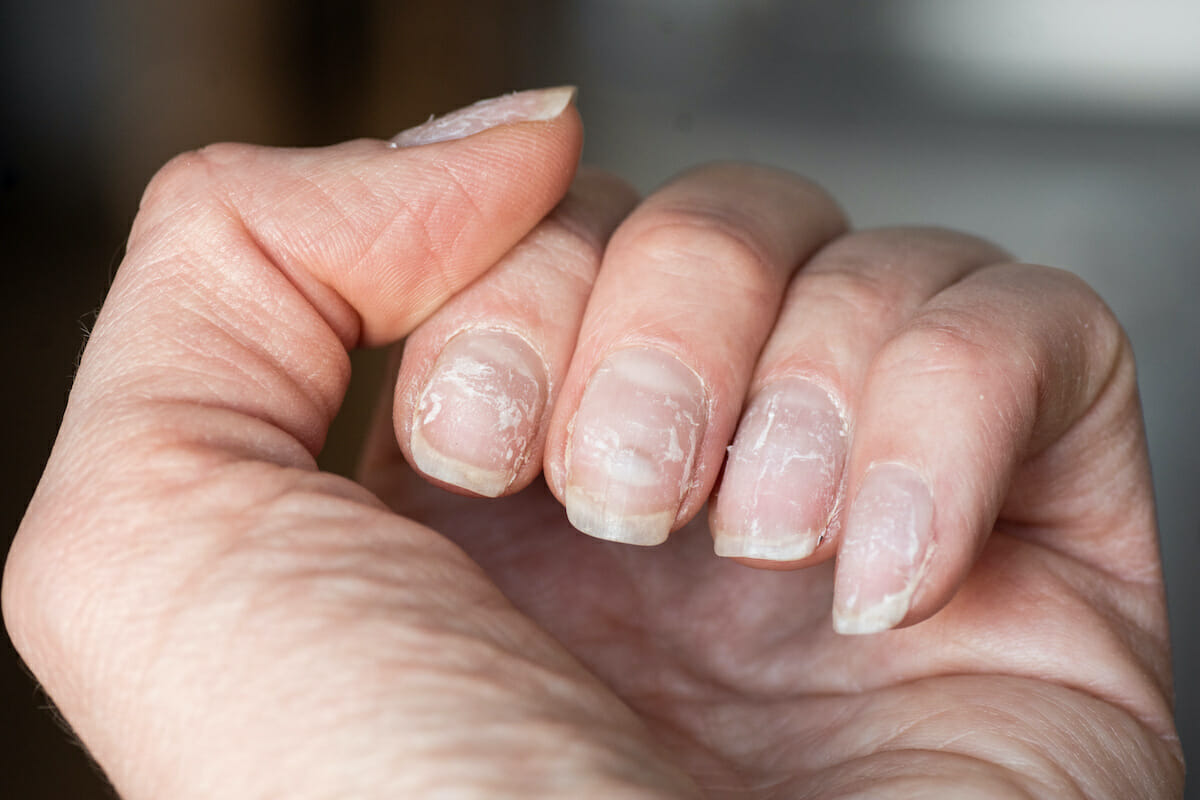Calcium is a key nutrient for your body to stay strong and healthy. It is an essential building block for lifelong bone health in both men and women, among many other important functions. While the amount you need depends on various factors, everyone can benefit from eating calcium-rich foods, limiting foods that deplete calcium, and getting enough magnesium and vitamins D and K—nutrients that help calcium do its job.
Calcium can seem confusing. How much should you get? Where should you get it? And what’s the deal with vitamin D, magnesium, and vitamin K? But once you understand the basics, it’s not that hard to include it in your diet and get the calcium you need.
Calcium is the most abundant mineral in the body, one that plays many vital roles. Your body uses it to build healthy bones and teeth, keep them strong as you age, send messages through the nervous system, help your blood clot, and regulate the heart’s rhythm, among other things.
How much calcium do you need?
0-6 months 210 milligrams / day
7-12 months 270 milligrams / day
1-3 years 500 milligrams / day
4-8 years 800 milligrams / day
9-18 years 1,300 milligrams / day
19-50 years 1,000 milligrams / day
50+ years 1,200 milligrams / day
How your body gets calcium
Your body gets the calcium it needs in one of two ways. The first and best way is through the foods you eat or the supplements you take. However, if you’re not consuming enough calcium, your body will get it in a different way, pulling it from your bones where it’s stored. That’s why diet is key.
Getting enough calcium in your diet is particularly important when you’re under the age of 30 and still building bone mass. Making smart choices now will help you avoid serious bone loss later in life. But no matter your age, you can take steps to protect your bones and put the brakes on osteoporosis.
The calcium and osteoporosis connection
Osteoporosis is a “silent” disease characterized by loss of bone mass. Due to weakened bones, fractures become commonplace, which leads to serious health risks such as the inability to walk. People with osteoporosis often don’t recover after a fall and it is the second most common cause of death in women, mostly those aged 60 and older. Men are also at risk of developing osteoporosis, but typically 5 to 10 years later than women. Fortunately, osteoporosis is preventable for most people, and getting enough calcium in your diet is the first place to start.
Food is the best source of calcium
Your body is able to absorb more calcium from food than it can from supplements. In fact, studies show that even though people who take calcium supplements have a higher average daily intake, those who get most of their calcium from food have stronger bones. On top of the better absorption rates, calcium from food often comes with other beneficial nutrients that help calcium do its job.
When you eat a diet rich in whole foods—vegetables, whole grains, nuts, seeds, and fruits—not only do you get a wonderful variety of tastes on your plate, but you also give your body the different nutrients, including calcium, that it needs. To boost your daily intake, try to include calcium-rich foods in multiple meals or snacks.
Avoid high-protein diets: Too much protein draws calcium from the bones. The body needs protein to build healthy bones. But as your body digests protein, it releases acids into the bloodstream that the body neutralizes by drawing calcium from the bones. Following a high-protein diet for a short time is unlikely to make much of a difference. But over a long period of time, eating a lot of protein could weaken your bones.
If you choose to consume dairy, then it’s best to opt for 1% or nonfat milk and other low-fat dairy products, which are lower in saturated fat and natural hormones. Choosing organic products when possible will also decrease your exposure to synthetic hormones and other additives. And if you decide that dairy is not the best choice for you, or you can’t tolerate milk products, there are other ways to include calcium in your diet.
Minimize calcium-draining substances
There are a number of foods and substances that, when consumed in excess, drain calcium from your bones and deplete your body’s calcium stores, such as caffeine, animal protein, alcohol, salt, soft drinks.
Be smart about calcium supplements
- Don’t take more than 500 mg at a time. Your body can only absorb a limited amount of calcium at one time, so it is best to consume calcium in small doses throughout the day.
- Take your calcium supplement with food. All supplemental forms of calcium are best absorbed when taken with food. If it’s not possible to take your supplement with food, choose calcium citrate.
- Purity is important. It’s best to choose calcium supplements with labels that state “purified” or, if you’re in the U.S., have the USP (United States Pharmacopeia) symbol. Avoid supplements made from unrefined oyster shell, bone meal, or dolomite that don’t have the USP symbol because they may contain high levels of lead or other toxic metals.
- Be aware of side effects. Some people do not tolerate calcium supplements as well as others and experience side effects such as acid rebound, gas, and constipation. For acid rebound, switch from calcium carbonate to calcium citrate. For gas or constipation, try increasing your intake of fluids and high-fiber foods.
- Check for possible drug interactions. Calcium supplements can interfere with other medications and vitamins you’re taking. Talk with your doctor or pharmacist about possible interactions. Any medications that you take on an empty stomach should NOT be taken with calcium.
Source: www.HelpGuide.org











